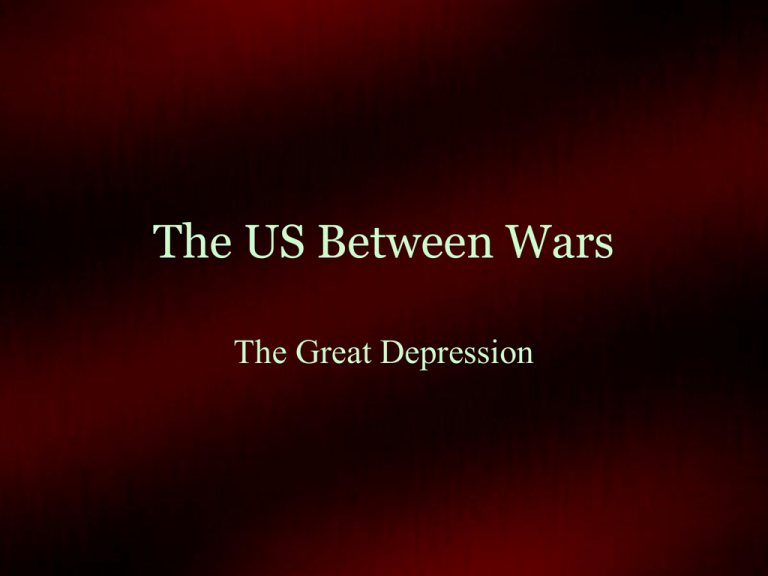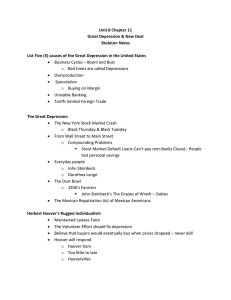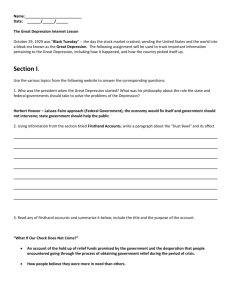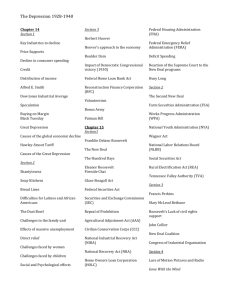The US Between Wars The Great Depression
advertisement

The US Between Wars The Great Depression Reasons for the Stock Market Crash Economic factors Imbalance between productivity and purchasing power Recurring problem of overproduction and underconsumption Severity of collapse International component Governmental policies High tariff reduced foreign demand for U.S. goods Hawley-Smoot Tariff of 1930 Gold standard Hoover’s Recovery Efforts Advocate of laissez-faire Focus on government-stimulated voluntarism Hoover’s exhortations Exhorted businesses to stay open maintain wages let first blow fall on profits Union leaders agreed to refrain from strikes and demands for increased wages Public works and credit Understood that construction spending could help Placed emphasis on private and state efforts States typically outspent feds 10/1 A Run on the American Union Bank Evicting the “Bonus Army” “The state is the representative of an organized society of human beings – created by them for their mutual protection and well being. The government is but the machinery through which such mutual aid and protection is achieved . . . . The duty of the state towards the citizens is the duty of the servant to its master.” Franklin Delano Roosevelt, August 1931 Contrasting Candidates Herbert Hoover (Republican) Time worn Principled Stressed volunteerism Believed in: limited government sound money balanced budget. Blamed depression primarily on international events Contrasting Candidates Franklin Delano Roosevelt (Democrat) Optimistic and energetic Embraced activist government Guiding principle: Government had a duty to help people Pragmatic “Trial and error” approach Blamed depression primarily on domestic factors The Presidential Election of 1932 Roosevelt’s Three-Pronged Strategy Address financial crises & emergency relief Promote industrial recovery Raise commodity prices Financial Crisis Rescuing the Monetary System Bank holiday Emergency Banking Act Economy Act Refinancing farm and home mortgages Reform of banking and stock markets Creation of FDIC Regulation of stocks and bonds (SEC) Abandonment of gold standard FDR and the “Fireside Chat” Financial Crisis Emergency Relief Measures: Civilian Conservation Corps (CCC) Federal Emergency Relief Administration Civil Works Administration Works Progress Administration (WPA) Federal Art and Writers’ Projects National Youth Administration Civilian Conservation Corps CCC Workers WPA: Building Roads in Utah Recovery Through Regulation Aid for agriculture Aid for industry Regional planning The Dust Bowl The Dust Bowl National Recovery Act NRA “We Do Out Part” Ending the Depression What ended the Great Depression? World War II




